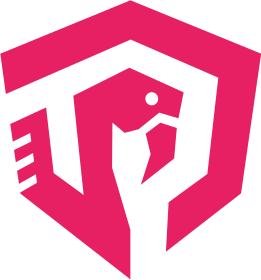Air
An ideally refined web framework for Go.
High-performance? Fastest? Almost all web frameworks are using these words to tell people that they are the best. Maybe they are, maybe not. Air does not intend to follow the crowd. Our goal is always to strive to make it easy for people to use Air to build their web applications. So, we can only guarantee you one thing: Air can serve properly.
Features
- API
- As less as possible
- As clean as possible
- As simple as possible
- As expressive as possible
- Server
- HTTP/2 (h2 & h2c) support
- SSL/TLS support
- ACME support
- PROXY (v1 & v2) support
- Graceful shutdown support
- Router
- Based on the Radix Tree
- Zero dynamic memory allocation
- Blazing fast
- Has a good inspection mechanism
- Group routes support
- Gas (aka middleware)
- Router level:
- Before router
- After router
- Route level
- Group level
- Router level:
- WebSocket
- Full-duplex communication
- Reverse proxy
- Retrieves resources on behalf of a client from another server
- Supported protocols:
- HTTP
- WebSocket
- gRPC
- Binder
- Binds HTTP request body into the provided struct
- Supported MIME types:
application/jsonapplication/xmlapplication/protobufapplication/msgpackapplication/tomlapplication/yamlapplication/x-www-form-urlencodedmultipart/form-data
- Renderer
- Rich template functions
- Hot update support
- Minifier
- Minifies HTTP response on the fly
- Supported MIME types:
text/htmltext/cssapplication/javascriptapplication/jsonapplication/xmlimage/svg+xml
- Gzip
- Compresses HTTP response by using the gzip
- Default MIME types:
text/plaintext/htmltext/cssapplication/javascriptapplication/jsonapplication/xmlapplication/tomlapplication/yamlimage/svg+xml
- Coffer
- Accesses binary asset files by using the runtime memory
- Significantly improves the performance of the
air.Response.WriteFile - Asset file minimization and gzip support
- Default asset file extensions:
.html.css.js.json.xml.toml.yaml.yml.svg.jpg.jpeg.png.gif
- Hot update support
- I18n
- Adapt to the request's favorite conventions
- Implanted into the
air.Response.Render - Hot update support
- Error
- Centralized handling
Installation
Open your terminal and execute
$ go get github.com/aofei/air
done.
The only requirement is the Go, at least v1.13.
Hello, 世界
Create a file named hello.go
package main
import "github.com/aofei/air"
func main() {
air.Default.GET("/", func(req *air.Request, res *air.Response) error {
return res.WriteString("Hello, 世界")
})
air.Default.Serve()
}
and run it
$ go run hello.go
then visit http://localhost:8080.
Documentation
Does all web frameworks need to have a complicated (or a lovely but lengthy) website to guide people how to use them? Well, Air has only one Doc with useful comments. In fact, Air is so succinct that you don't need to understand how to use it through a large document.
Gases
As we all know that the air of Earth is a mixture of gases. So the same is that Air adopts the gas as its composition. Everyone can create new gas and use it within Air simply.
A gas is a function chained in the HTTP request-response cycle with access to the air.Request and air.Response which it uses to perform a specific action, for example, logging every request or recovering from panics.
return func(next air.Handler) air.Handler {
return func(req *air.Request, res *air.Response) error {
// Do something here...
return next(req, res) // Execute the next handler
}
}
If you already have some good HTTP middleware, you can simply wrap them into gases by calling the air.WrapHTTPMiddleware.
If you are looking for some useful gases, simply visit here.
Examples
If you want to be familiar with Air as soon as possible, simply visit here.
FAQ
Why named Air?
"A" for "An", "I" for "Ideally" and "R" for "Refined". So, Air.
Why based on the net/http?
In fact, I've tried to implement a full-featured HTTP server (just like the awesome valyala/fasthttp). But when I finished about half of the work, I suddenly realized: What about stability? What about those awesome middleware outside? And, seriously, what am I doing?
Why not just use the net/http?
Yeah, we can of course use the net/http directly, after all, it can meet many requirements. But, ummm... it's really too stable, isn't it? I mean, to ensure Go's backward compatibility (which is extremely necessary), we can't easily add some handy features to the net/http. And, the http.Request does not only represents the request received by the server, but also represents the request made by the client. In some cases it can be confusing. So why not just use the net/http as the underlying server, and then implement a refined web framework that are only used for the server-side on top of it?
Do you know we already got the gin-gonic/gin and labstack/echo?
Of course, I knew it when I started Go. And, I love both of them! But, why not try some new flavors? Are you sure you prefer them instead of Air? Don't even give Air a try? Wow... well, maybe Air is not for you. After all, it's for people who love to try new things. Relax and continue to maintain the status quo, you will be fine.
What about the fantastic Gorilla web toolkit?
Just call the air.WrapHTTPHandler and air.WrapHTTPMiddleware.
Is Air good enough?
Far from enough. But it's already working.
Community
If you want to discuss Air, or ask questions about it, simply post questions or ideas here.
Contributing
If you want to help build Air, simply follow this to send pull requests here.
License
This project is licensed under the MIT License.
License can be found here.







